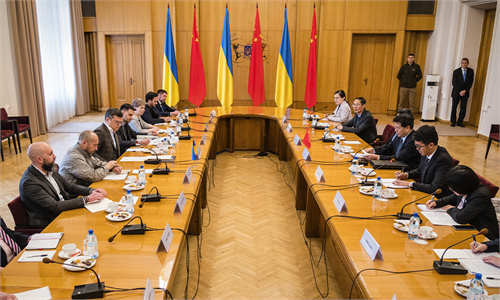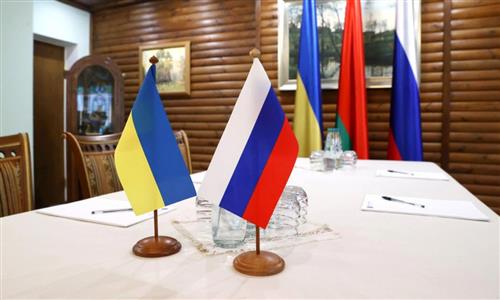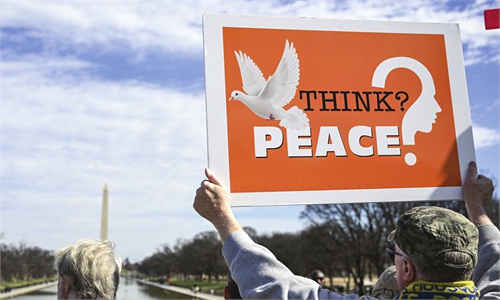Western hype about China's 'shift in tone' on Ukraine conflict nonsense, aims to sow discord: experts
China's attendance at Jeddah talks signals 'more mature timing for dialogue'
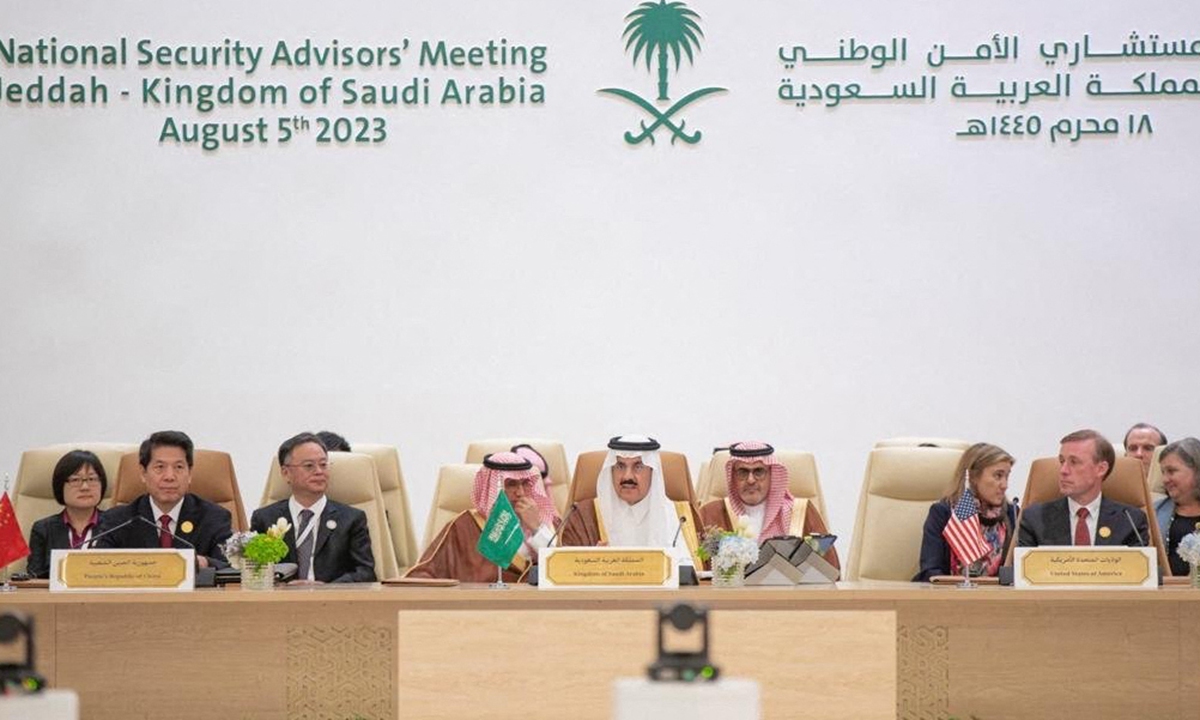
A handout picture provided by the Saudi Press Agency on August 6, 2023 shows Saudi Arabia's National Security advisor and Minister of State Musaad bin Mohammed al-Aiban (center) speaking during a National Security advisors' meeting in Jeddah on August 5. Photo: AFP
As the West hypes China's "possible shifts in tone" toward the Ukraine crisis after Chinese special envoy Li Hui attended peace talks in Saudi Arabia, experts stressed on Monday that China's stance has not changed, but the attendance only signals a "more mature timing for dialogue," noting that such Western rhetoric is only seeking to sow discord between Beijing and Moscow.
Efforts to forge an international consensus around a feasible and durable peace settlement to the Ukraine crisis have shown progress over the weekend, as senior officials from China, the US, Europe as well as countries in the Global South met in Jeddah, Saudi Arabia.
The Jeddah meeting was the second of its kind, after the first round of talks in Copenhagen in June, to which China was invited but did not attend, according to media reports.
The involvement of China this time was seen as a "considerable breakthrough," during which China "participated actively and was positive about the idea of a third meeting at this level," an EU source was quoted as saying by the Guardian on Sunday.
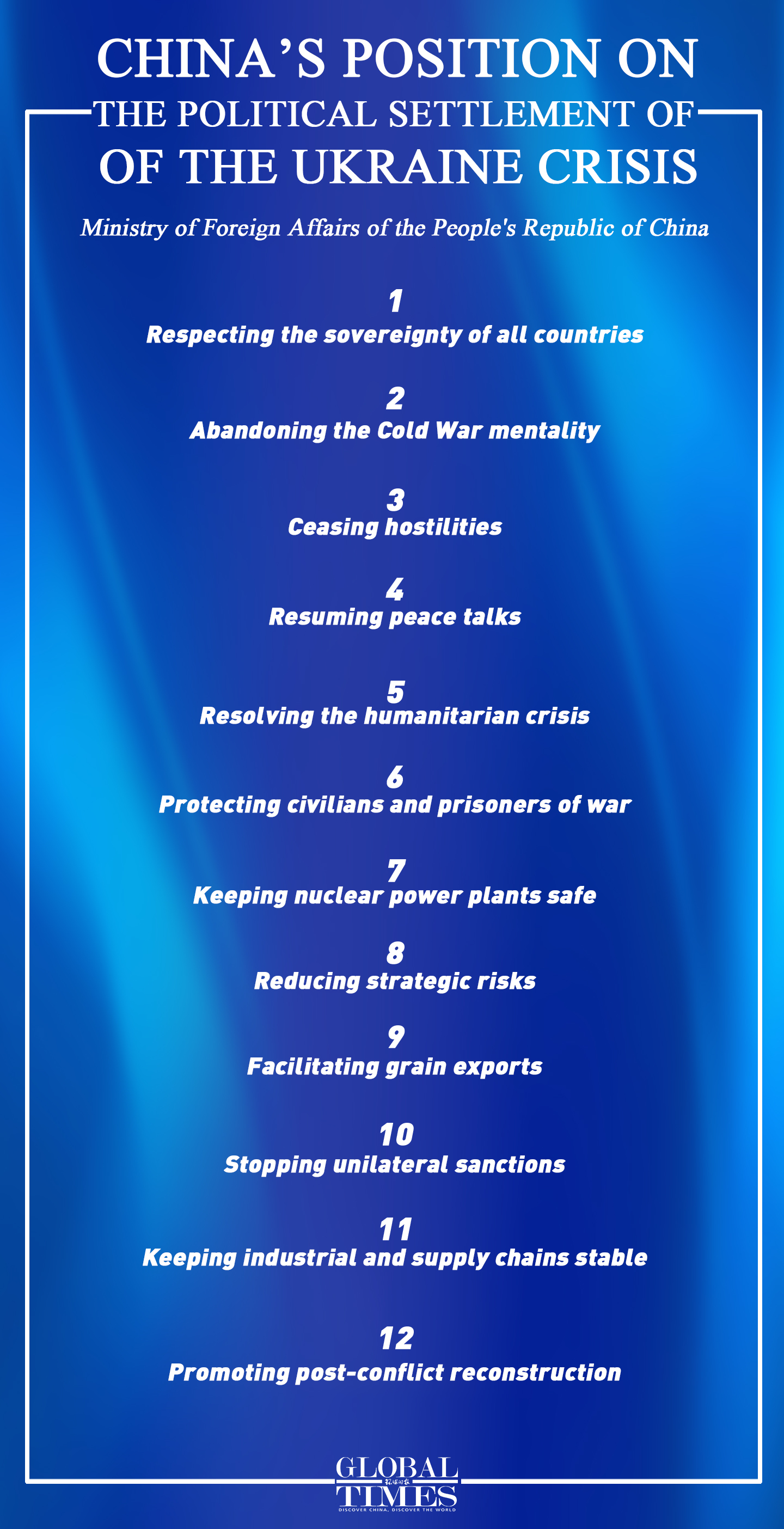
China's Position on the Political Settlement of the Ukraine Crisis. Graphic: GT
During the talks, China presented its own 12-point plan for peace talks, which it first announced in February. "We have many disagreements and we have heard different positions, but it is important that our principles are shared," Li was quoted by Reuters as saying before the meeting.
China's decision to join the talks in Saudi Arabia has been hyped as signaling "possible shifts in Beijing's approach" toward the Ukraine crisis, said a Reuters report.
Cui Heng, a lecturer at the China-Shanghai Cooperation Organization training base for international judicial exchanges and cooperation, refuted the saying as "nonsense," noting that Beijing's choice to attend the Jeddah meeting but not the Copenhagen one has, on the contrary, showed China's consistent stance on the issue.
"The Copenhagen meeting in June was led by the US, who had set the tone to hold Russia accountable prior to the meeting. And that's certainly something China does not agree with. This time in Saudi Arabia, however, the talks progressed in a more neutral environment, where we could hear voices from various parties and share our views," Cui told the Global Times on Monday.
Zhang Hong, an associate research fellow at the Institute of Russian, Eastern European and Central Asian Studies of the Chinese Academy of Social Sciences, added that the timing was not right during the Copenhagen talks. Specifically, the tension between China and the US, and the lack of feasibility in Ukraine's peace proposal, Zhang noted.
This time, a difference in tone from the Ukraine side was observed, indicating that room for negotiation has opened up which created a positive atmosphere for communication, Zhang told the Global Times on Monday.
A Wall Street Journal report said, with subtlety, that some of the differences that emerged in Copenhagen "appeared to have narrowed," referring to Ukraine demanding Russian forces to fully withdraw from its territory as premises for peace talks at the Copenhagen meeting, a proposal that many developing countries declined to accept.
In Jeddah, however, Ukraine seemed "keener to seek out a consensus" and refrained from pushing again for its peace plan to be accepted, the report said.
Furthermore, China's attendance at the Jeddah meeting was in part out of the close relationship it has with Saudi Arabia. Its hosting the event carries more significance as it is an important member of the Organization of the Petroleum Exporting Countries (OPEC) and a non-West country, as well as a major economic power in the Middle East and among the Muslim world, experts said.
While no joint statement was released after the meeting, there was agreement that working groups would be set up to develop details of Ukraine's peace formula while a parallel ambassadors' group would continue technical work on the issues.
Working groups would investigate solutions in relation to global food security, nuclear safety, environmental security, humanitarian aid, the release of prisoners of war and kidnapped children.
The food security issue was particularly a concern of developing countries underscored after Russia pulled out from the Black Sea grain initiative in July, Zhang said.
